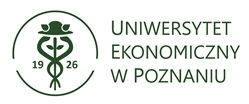Future research on European Union Cohesion Policy: a Master Class during the OPEN DAYS 2014
| Tytuł | Future research on European Union Cohesion Policy: a Master Class during the OPEN DAYS 2014 |
| Publication Type | Journal Article |
| Year of Publication | 2015 |
| Authors | Petzold, W., Guderjan M., Smeriglio A., Tourtouri M., Surubaru N-. Cristian, Salemink K., Idczak P., Monsson C. Kjær, Bajtalan H., Garau C., Soultanova M., Usai A., Medeiros E., Szulc T., Trienes M., Jaansoo A., Lange E., Yalcin G., Modro G., & Venineaux J-M. |
| Journal | Regional Studies, Regional Science |
| Volume | 2 |
| Issue | 1 |
| Start Page | 184 |
| Pagination | 184-203 |
| Date Published | 03/2015 |
| ISSN | 2168-1376 (Online) |
| Abstract | Between 6 and 8 October 2014, the 12th European Week of Regions and Cities – OPEN DAYS – hosted an early career Master Class for the second time, aiming to improve understanding of European Union (EU) Cohesion Policy and its research potential. Organized by the European Commission’s DG for Regional and Urban Policy (DGREGIO), the Committee of the Regions (CoR) and the Regional Studies Association (RSA), the Master Class brought together 29 doctoral students and early career researchers from 15 EU member states and three non-EU countries. The evaluation of the Master Class by participants and lecturers revealed a high level of satisfaction with the networking opportunities provided. The World Café session coordinated by John Bachtler from the Strathclyde University received the highest appreciation. As a result of the latter, participants of the Master Class summarized their views on different aspects in the five subsequent articles. Marius Guderjan, Alba Smeriglio and Myrto Tourtouri look into the policy and research challenges for EU Cohesion Policy for the years to come. Neculai-Cristian Surubaru, Koen Salemink, Piotr Idczak and Christian Kjær Monsson discuss the components of administrative capacity, the elements that affect it and instruments that may help improve it. Also with regard to administrative capacity-building for the management of the EU Structural and Investment Funds, Hunor Bajtalan, Chiara Garau, Mariana Soultanova and Alessia Usai propose a stronger research focus on possibilities to reduce political intervention in public administrations and on the role civil society organizations can play in this respect. Finally, two articles focus on research challenges concerning the ‘European Territorial Cooperation’ objective of EU Cohesion Policy, also known as ‘Interreg’. Eduardo Medeiros, Tomasz Szulc and Marco Trienes suggest concentrating on the development of typologies of border regions, the need for a longer-term cross-border planning process, and the use of territorial impact assessment instruments, while Annika Jaansoo, Emily Lange, Gökhan Yalcin, Gordon Modro and Jean-Marc Venineaux develop a list of issues reflecting on ‘capacity and governance’ |
| URL | http://rsa.tandfonline.com/doi/pdf/10.1080/21681376.2015.1013151 |
| DOI | 10.1080/21681376.2015.1013151 |

